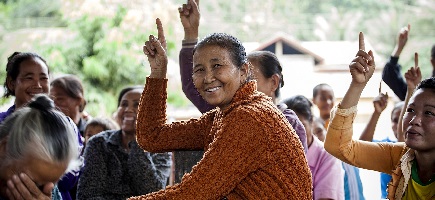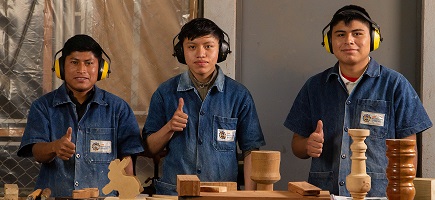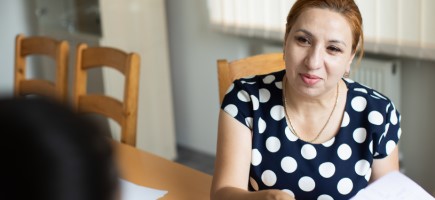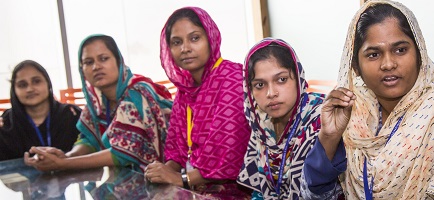
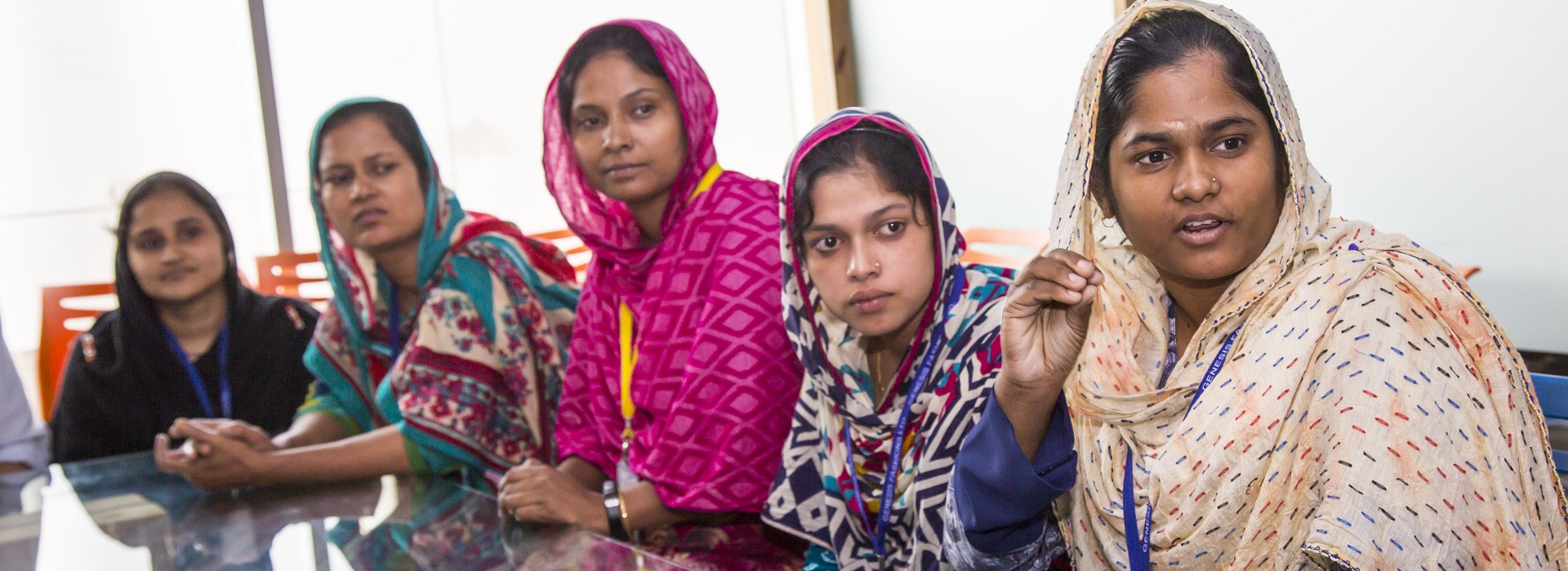
Social Development: A secure future
Health and accident insurance: millions of people in Bangladesh and India are benefiting.
Fewer than half of the people in Asia have social insurance. Accidents and illness can be a fast route to deprivation and social decline, often ending below the poverty line. Improved and rapid social support now offers people more security.
Dilruba Begum worked as a seamstress in a large textile factory in Bangladesh until an accident with a needle caused her to lose her right eye. During her convalescence, she received no financial support. Her employer only paid for the hospital expenses immediately after the accident. She bore the lion’s share of the costs herself. ‘It was a difficult time for me,’ she remembers.
In order that cases such as Dilruba Begum’s are not repeated, the Government of Bangladesh has launched a pilot project. Under the project, all employees in the textile and garments sector are financially covered against accidents at work. This is the first government accident insurance scheme in the country. The Deutsche Gesellschaft für Internationale Zusammenarbeit (GIZ) GmbH is advising the Government of Bangladesh on developing the necessary legal framework. By providing training, GIZ is also helping establish effective administrative structures. The aim here is to ensure that insurance cases are well documented and that those affected receive prompt financial support. GIZ was commissioned by the German Federal Ministry for Economic Cooperation and Development (BMZ). The project works closely with the International Labour Organization (ILO) and the Dutch Embassy in Bangladesh.
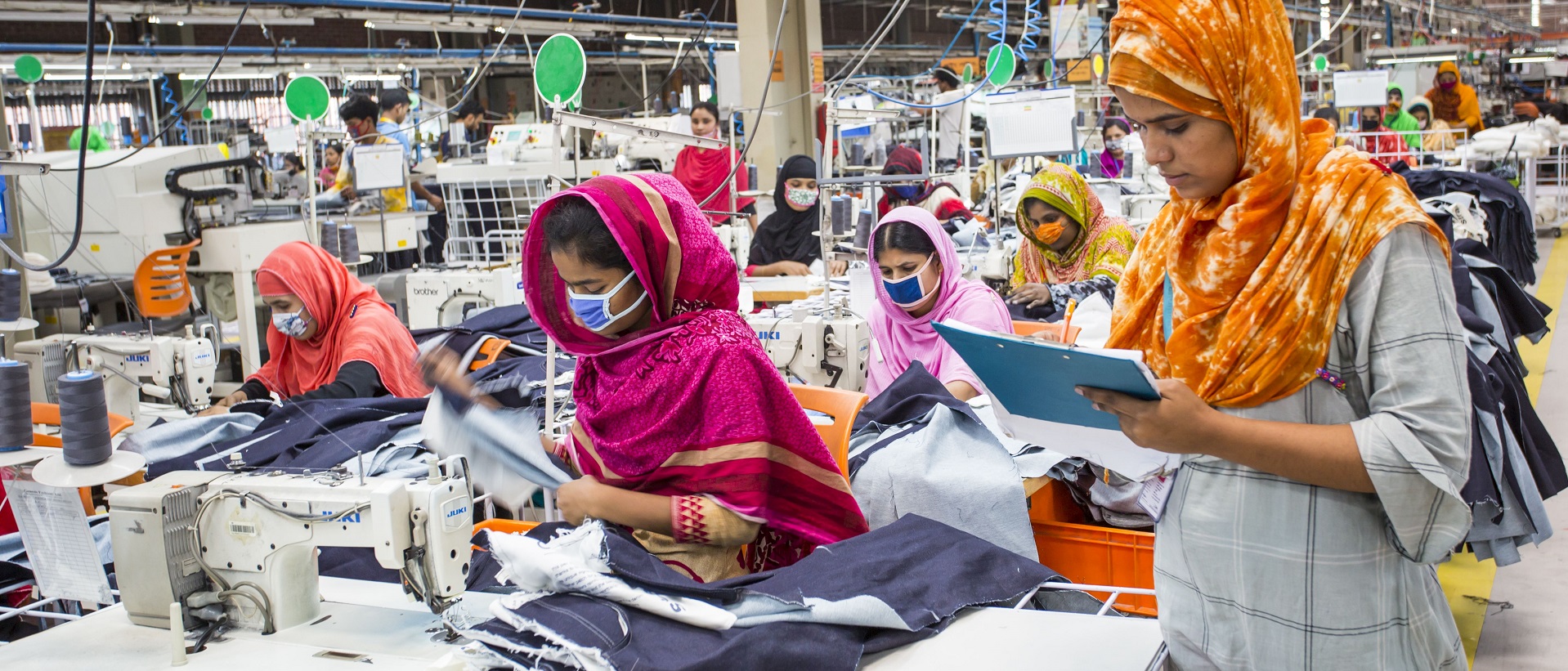
Accident insurance protects women in the textile sector
Four million workers are already benefiting from the accident insurance scheme – as is Dilruba Begum. She is now employed as an auxiliary worker in a textile factory. She says: ‘I am delighted. Today, if one of my colleagues or I have an accident, we receive monthly compensation payments. It’s a huge relief knowing that we now have this protection.’
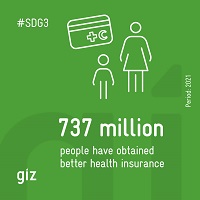
As in Bangladesh, GIZ supports countries worldwide on behalf of BMZ in establishing effective and equitable insurance schemes. They are an effective instrument for combating poverty as they safeguard employees from falling into poverty or losing their jobs if they have an accident. And this takes effect immediately, from the day on which the schemes are introduced. This is important for social cohesion because it sustainably reduces social inequality.
India: free treatment for millions of people
In India too, a government insurance scheme provides comprehensive health cover: more than 500 million people are entitled to free treatment in registered hospitals. The Indian Government introduced the world’s largest state-funded health insurance scheme in 2018, and it has become a shining example for other countries. It enables poor families who have not made any contributions to access hospital treatment. From April 2020 to January 2022 alone, 18 million treatments in approximately 28,000 contract hospitals were carried out under the insurance scheme. Treatment is also available to workers in the informal sector, who until now have had insufficient social protection or no cover at all.
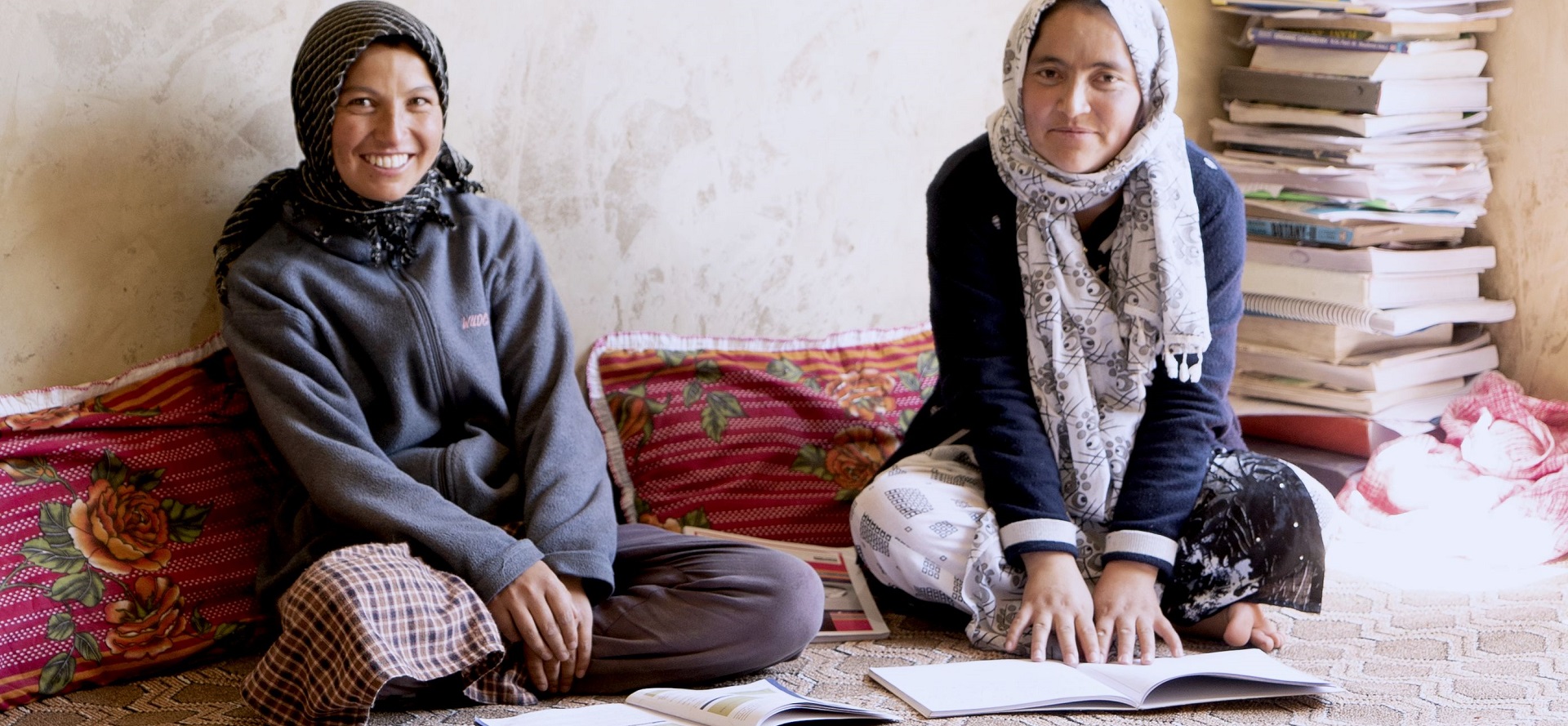
On behalf of BMZ, GIZ has been supporting the Indian Government with this project from the outset. For more than 10 years, it has been advising on planning and implementation and is helping to set up decentralised structures and train the required specialists. Atiya Khatoon is one of those who has benefited. It wasn't until she was in hospital that she learned about her health cover. The 29-year-old student needed gallstone surgery, which she chose not to have despite the recurring symptoms. ‘I was more worried about the costs than the operation itself,’ says Atiya, who is from a smallholder family. Her family would have had to go into debt to pay for the operation. As she was entitled to insurance cover, Atiya registered and then underwent the operation without have to make any payments.
Women in particular now find it easier to access health services in India thanks to the health insurance scheme. Initially, there was a limit on the number of insured persons per household with the result that the treatment of women and girls in large families was neglected. Now, each family member can register for health cover, and women and girls can decide for themselves whether and when to seek treatment. The proportion of women who accessed health services rose from 37% in 2019 to 44% in 2021. Atiya, who has made a complete recovery, can now concentrate fully on her studies and move ahead again. ‘I now listen more to what my body is telling me. And I encourage others not to neglect their health.’
Last update: August 2022
